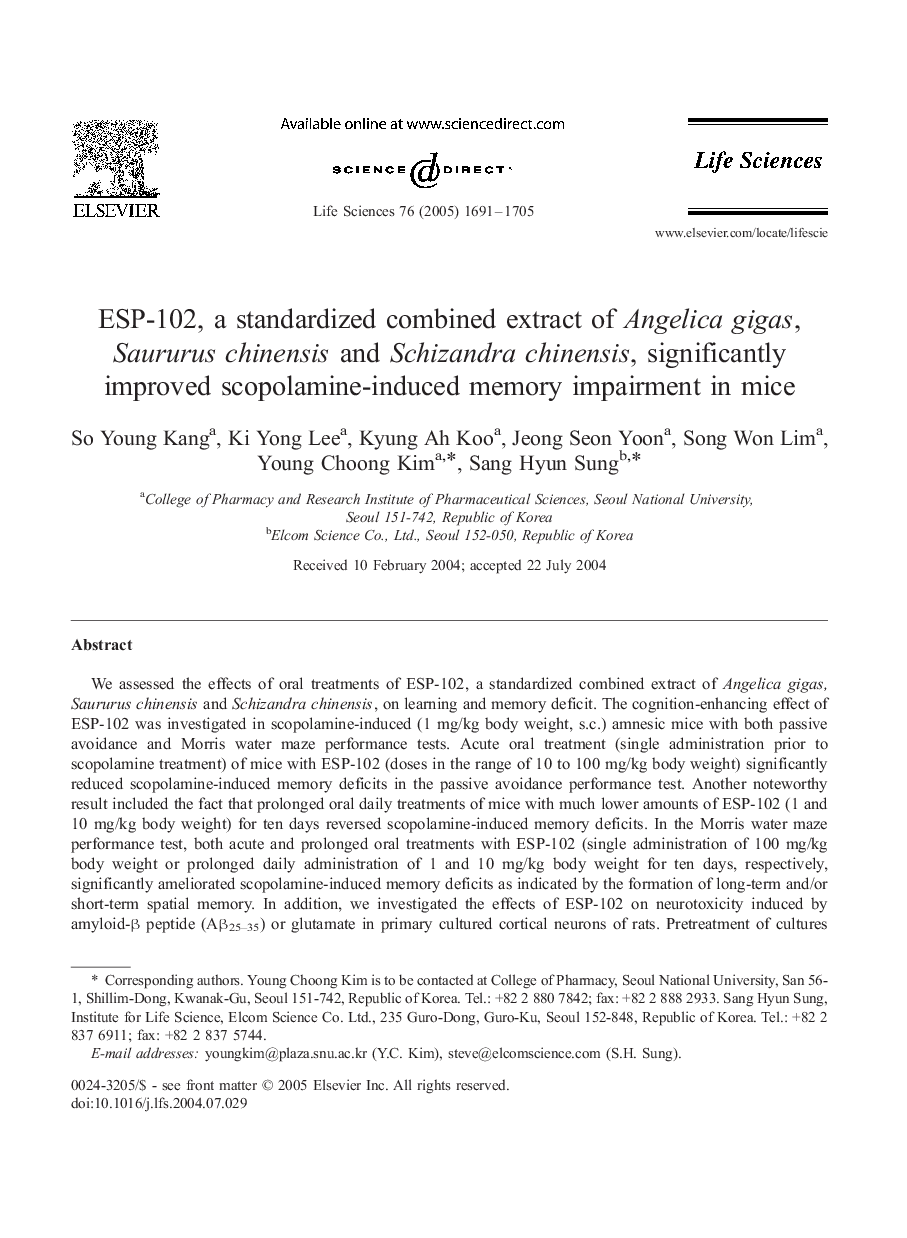| Article ID | Journal | Published Year | Pages | File Type |
|---|---|---|---|---|
| 9012519 | Life Sciences | 2005 | 15 Pages |
Abstract
We assessed the effects of oral treatments of ESP-102, a standardized combined extract of Angelica gigas, Saururus chinensis and Schizandra chinensis, on learning and memory deficit. The cognition-enhancing effect of ESP-102 was investigated in scopolamine-induced (1 mg/kg body weight, s.c.) amnesic mice with both passive avoidance and Morris water maze performance tests. Acute oral treatment (single administration prior to scopolamine treatment) of mice with ESP-102 (doses in the range of 10 to 100 mg/kg body weight) significantly reduced scopolamine-induced memory deficits in the passive avoidance performance test. Another noteworthy result included the fact that prolonged oral daily treatments of mice with much lower amounts of ESP-102 (1 and 10 mg/kg body weight) for ten days reversed scopolamine-induced memory deficits. In the Morris water maze performance test, both acute and prolonged oral treatments with ESP-102 (single administration of 100 mg/kg body weight or prolonged daily administration of 1 and 10 mg/kg body weight for ten days, respectively, significantly ameliorated scopolamine-induced memory deficits as indicated by the formation of long-term and/or short-term spatial memory. In addition, we investigated the effects of ESP-102 on neurotoxicity induced by amyloid-β peptide (Aβ25-35) or glutamate in primary cultured cortical neurons of rats. Pretreatment of cultures with ESP-102 (0.001, 0.01 and 0.1 μg/ml) significantly protected neurons from neurotoxicity induced by either glutamate or Aβ25-35. These results suggest that ESP-102 may have some protective characteristics against neuronal cell death and cognitive impairments often observed in Alzheimer's disease, stroke, ischemic injury and other neurodegenerative diseases.
Keywords
Related Topics
Health Sciences
Medicine and Dentistry
Cardiology and Cardiovascular Medicine
Authors
So Young Kang, Ki Yong Lee, Kyung Ah Koo, Jeong Seon Yoon, Song Won Lim, Young Choong Kim, Sang Hyun Sung,
